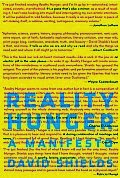
I read with intent and interest quite a few novels this year, notably those New York Time Book Review front pagers, and for all of the complaints about the imperiled state of publishing and the apparent evidence of a lack of good novels out there, I must conclude that the hype in that hallowed reviewed selection is often well-deserved. I thought about making a best of list this year, but I always find that it’s too difficult to narrow down, and ignores the likelihood of reading selectively. So here, in lieu, are five standout novels that I found memorable and generally enjoyable this year. The recession may be dipping again, but the novel is alive and well in 2010.
Tom Rachman’s first novel, The Imperfectionists, with its intersecting character stories, conveys a historical mosaic of the lives of journalists working for a fictional Herald-Tribune-like paper based in Rome, and is compelling for its readability, humor and O’ Henry type blunt traumas. Rachman’s journalism background, with an emphasis on the concrete and the compressed, helps him to keep the numerous and at times confusing character’s stories--surprisingly dialogue heavy--from fading. Initially, I thought this was a misleadingly marketed “novel in stories,” though in fact few of the chapters could stand alone very well. The international locales give its occasionally flat characters a welcome dose of color, though the misery he inflicts on some of them has tinges of unnecessary cruelty.
Adam Ross’s Mr. Peanut, also a first novel, which drew me in by its persuasive opening, almost doesn’t fulfill its promise. Ross carries through the premise of his story, however, a la, “Did David kill his wife?--and if so, how?” and is deft at calibrating the interactions of the main couple, David Pepin and his obese and ambivalently adored wife, Alice. The compounding details paint an evocative though wildly unbelievable event, and the use of the competing narratives of the two policemen who also happen to have a desire to dispatch their wives into oblivion, is overly contrived, but Mr. Peanut holds its sway in spite of the loose tying together that concludes the novel with a thud.
Ian McEwan’ Solar is an indulgent feast of satire that harkens back to Amsterdam, operating in a comedic-tragic register which recalls the bold mischief of his early short stories. There, the characters are young and depraved, making sense of the world from a limited understanding of it. What those life lessons earn the protagonist of Solar, Michael Beard, is a deficit. Youthful curiosity and glory is eventually replaced with the fading returns of post-middle-age survival. Beard isn’t a character easy to like, but he seems prototypically human, and it is as easy to laugh at him as it is to have hope for him in his failings.
Skippy Dies, by Irish novelist Paul Murray, is one of the best written, compulsively enjoyable books I’ve read all year, and possibly my favorite long novel (at 600 plus pages) of the year, of the kind that I couldn’t stop reading and yet didn’t want it to end. The story takes place among a boys’ boarding high school (here known as a “College”) with its resident students, teachers, and the complications of the much longed for creatures glanced across the lawn of a neighboring girls’ school. What almost halts some of the pleasure of the tale comes after Skippy does finally die, a foregone conclusion from the opening pages. But what works is Murray’s well-drawn characters, specifically Skippy and the inner torment of a pill popping fourteen year old mediated in a Joycean stream of consciousness.
Jonathan Franzen’s Freedom is a welcome step beyond The Corrections, though the novel that will probably top everyone’s best of lists has a few false logic notes with some of the character’s traits, and takes one through an oddly chosen many pages long narrative of the main character’s unlikely autobiography written in third person. For its many flaws, the novel is engaging, especially when the stakes are high and the specter of social grievances--infidelity, politics, and alcoholism--rear their subtextual heads. To use a broad adjective that Franzen seems so enamored of that it serves as an ineffective short-hand for the character’s assessments of each other, the novel is interesting. Franzen has a comic timing for hilarious turns of phrase, and the novel is at times guffaw out loud funny. The broad scope and convergence of the Bergland family’s self-involvements and misapprehensions of their own desires as they attain and rail at their freedoms, keep the novel rolling entertainingly forward.
